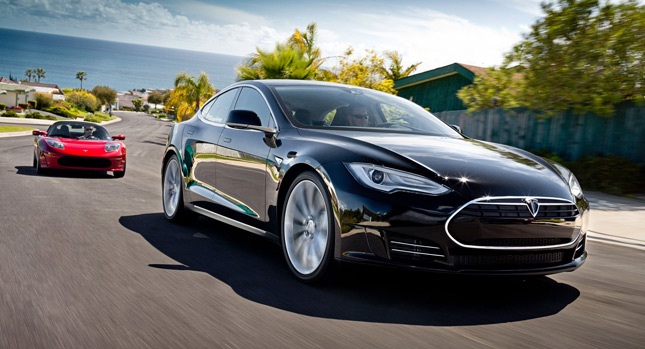Electric car manufacturer Tesla Motors has had its ups and downs in recent months. It may still be in the red and facing the wrath of traditional dealers over its Apple-like stores, but its Model S received a lot of praise, and unlike rival Fisker Automotive, it hasn’t been involved in massive (and image-damaging) recalls.
What it does have in common with Fisker, though, is federal agencies questioning their spending of federal loans. According to a report from The Washington Times, the Immigration and Customs Enforcement (ICE) agency has been conducting an investigation on Tesla for nearly a year.
Tesla received a US$465 million federal loan from the Department of Energy (DoE) in early 2010. ICE investigators were, according to a DoE inspector general memo, “looking into whether Tesla Motors is using foreign-made parts in manufacturing their vehicles rather than U.S-made parts.”
The records obtained by the newspaper under the Freedom of Information Act show that an ICE official said the agency “was proactively investigating” whether Tesla used its foreign trade zone status to bypass loan requirements that it must buy American, not foreign, products.
Foreign trade zones were created in the 1930s and are certain designated areas where products can be imported without the usual custom duties and procedures. Federal records show that Tesla’s application for a “sub-zone” in San Jose’s foreign trade zone was approved on September 20.
The DoE eventually told ICE investigators that the federal loan received by Tesla was part of a federal appropriations bill and not President Obama’s stimulus program. As such, its two-page summary concluded, it “does not have the same ‘buy American’ requirement”.
Tesla has made no mention of a government investigation, though, in all fairness, the documents do not show that it was informed about it by the DoE. Nevertheless, its spokeswoman declined to comment when questioned by The Times last Monday and her ICE counterpart, Gillian Christensen, said that “as a matter of policy, we neither confirm nor deny the existence of ongoing investigations.”
For the record, Tesla has made no secret that it uses Panasonic-supplied batteries, and so does Ford in its new Fusion and C-MAX Hybrid and Hybrid Energi models.
By Andrew Tsaousis
PHOTO GALLERY










